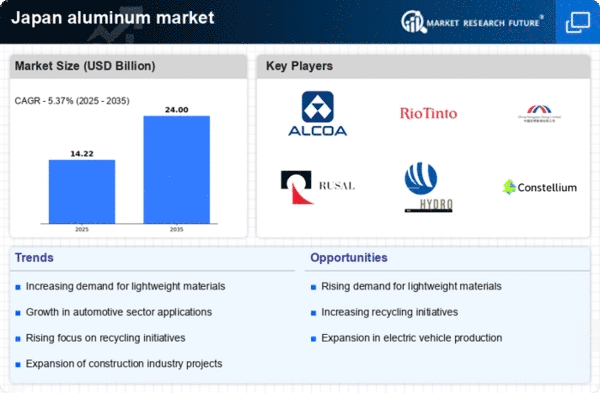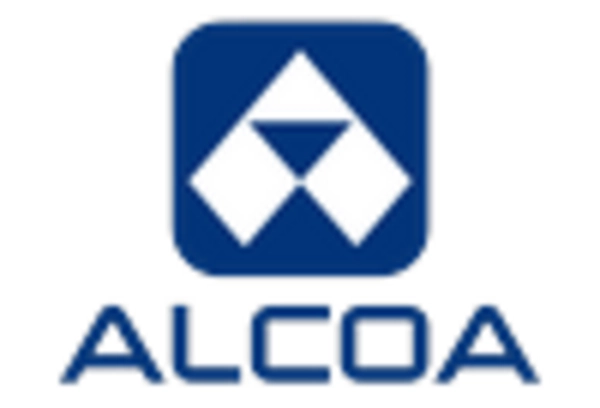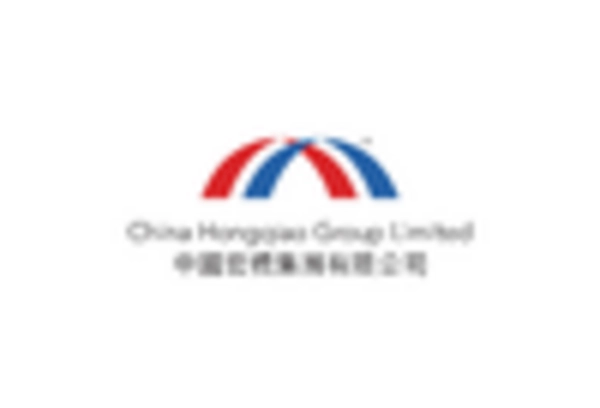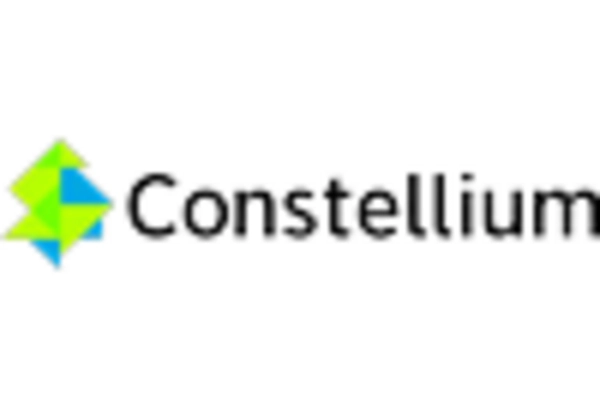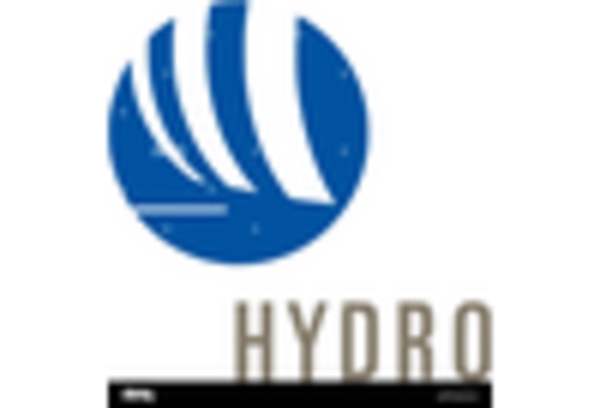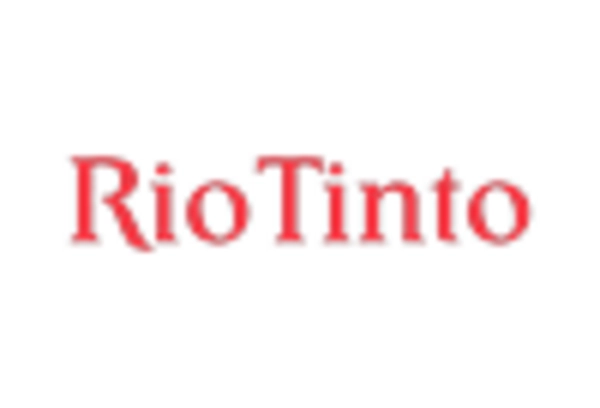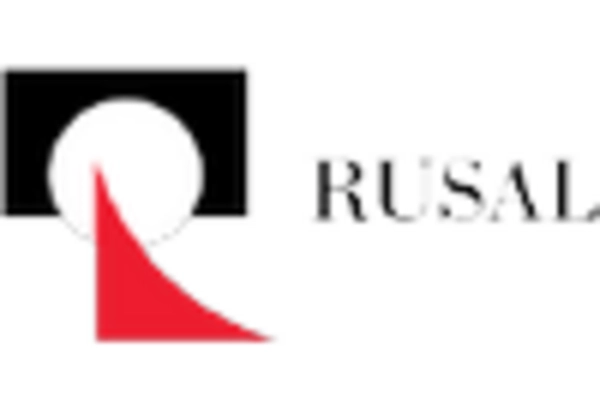The aluminum market in Japan is characterized by a competitive landscape that is increasingly shaped by innovation, sustainability, and strategic partnerships. Key players such as Alcoa Corporation (US), Rio Tinto Group (GB), and Novelis Inc. (US) are actively pursuing strategies that emphasize technological advancements and environmental responsibility. Alcoa Corporation (US) has focused on enhancing its production efficiency through the adoption of advanced manufacturing technologies, while Rio Tinto Group (GB) has been investing in sustainable mining practices to reduce its carbon footprint. Novelis Inc. (US), on the other hand, is concentrating on expanding its recycling capabilities, which aligns with the growing demand for sustainable aluminum solutions. Collectively, these strategies not only enhance their competitive positioning but also contribute to a more sustainable aluminum market in Japan.In terms of business tactics, companies are increasingly localizing manufacturing to better serve regional markets and optimize supply chains. The competitive structure of the aluminum market in Japan appears moderately fragmented, with several key players exerting influence over pricing and innovation. This fragmentation allows for a diverse range of products and services, catering to various customer needs while fostering competition among established and emerging players.
In October Alcoa Corporation (US) announced a partnership with a leading Japanese technology firm to develop a new aluminum alloy that enhances performance in automotive applications. This collaboration is strategically significant as it positions Alcoa to leverage local expertise and meet the increasing demand for lightweight materials in the automotive sector, thereby strengthening its market presence in Japan.
In September Rio Tinto Group (GB) unveiled its plans to invest $200 million in a new recycling facility in Japan, aimed at increasing the supply of recycled aluminum. This investment underscores Rio Tinto's commitment to sustainability and reflects a broader industry trend towards circular economy practices. By enhancing its recycling capabilities, the company is likely to improve its competitive edge while addressing environmental concerns associated with aluminum production.
In August Novelis Inc. (US) launched a new initiative focused on digital transformation within its manufacturing processes. This initiative includes the implementation of AI-driven analytics to optimize production efficiency and reduce waste. The strategic importance of this move lies in Novelis's ability to enhance operational efficiency and respond more effectively to market demands, thereby solidifying its leadership position in the aluminum sector.
As of November the competitive trends in the aluminum market are increasingly defined by digitalization, sustainability, and the integration of advanced technologies. Strategic alliances among key players are shaping the landscape, fostering innovation and enhancing supply chain reliability. Looking ahead, it is anticipated that competitive differentiation will evolve, with a shift from traditional price-based competition to a focus on innovation, technological advancements, and sustainable practices. This transition is likely to redefine the parameters of competition, compelling companies to invest in R&D and forge strategic partnerships to maintain their market positions.


